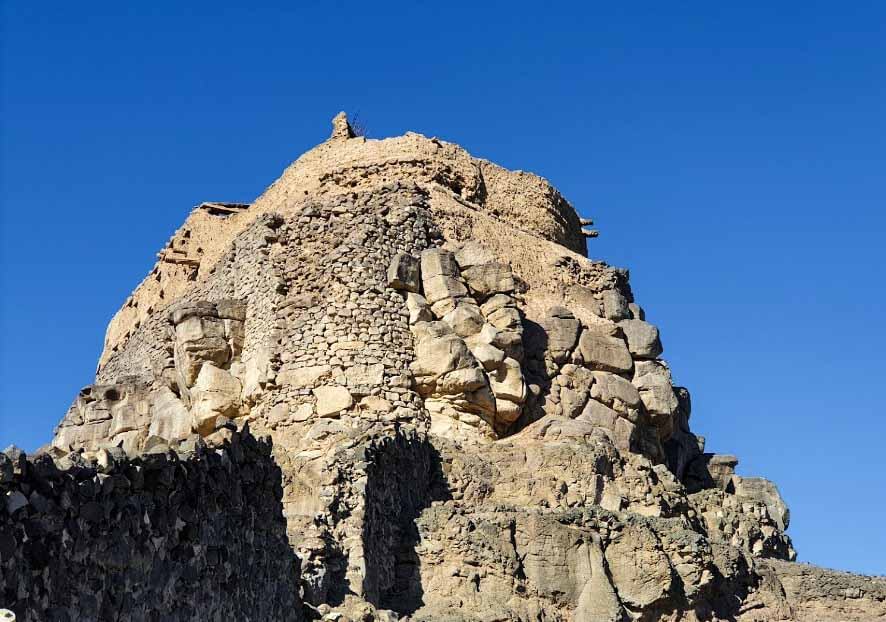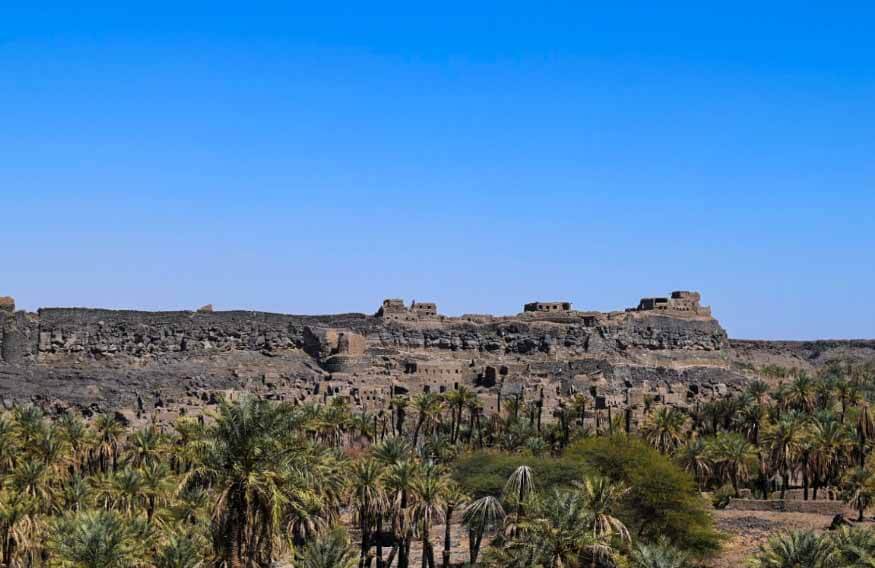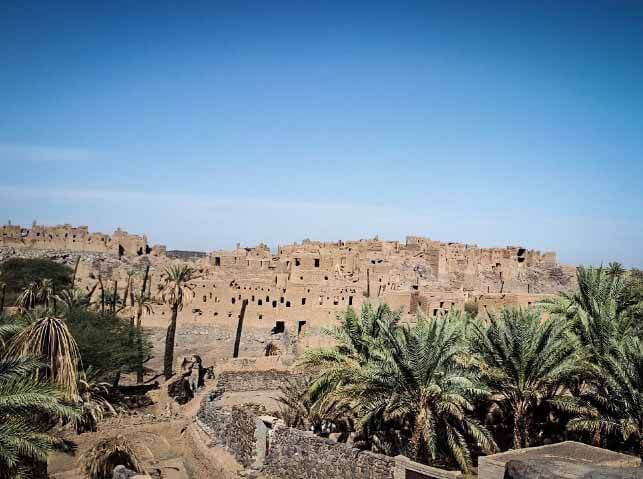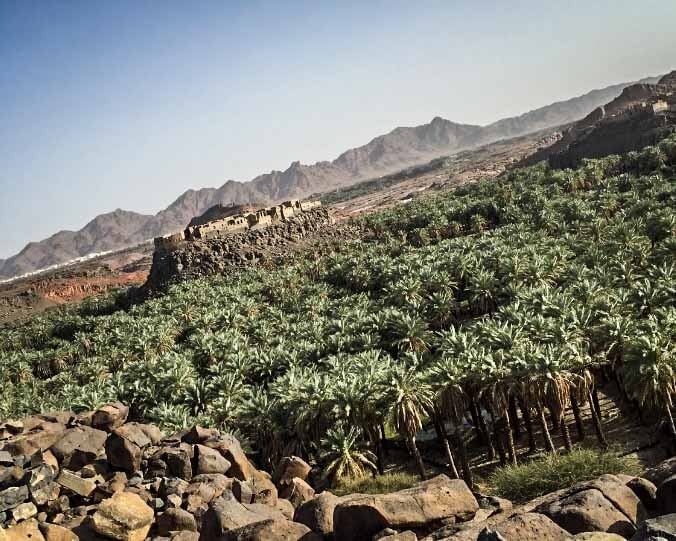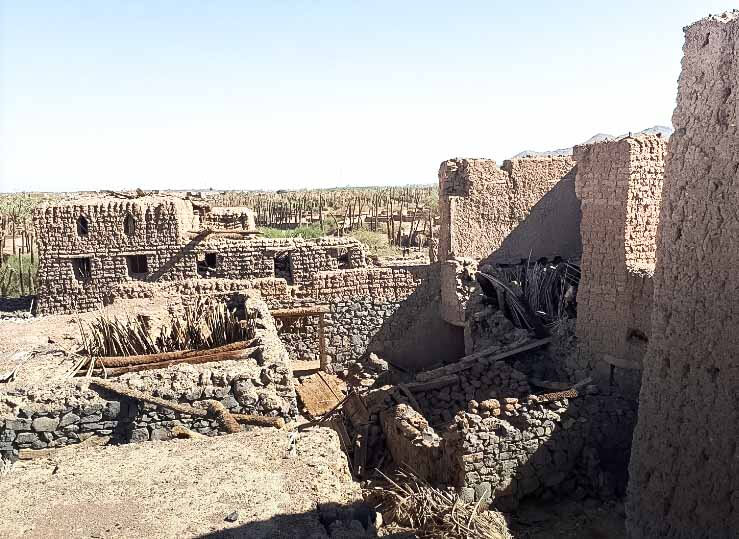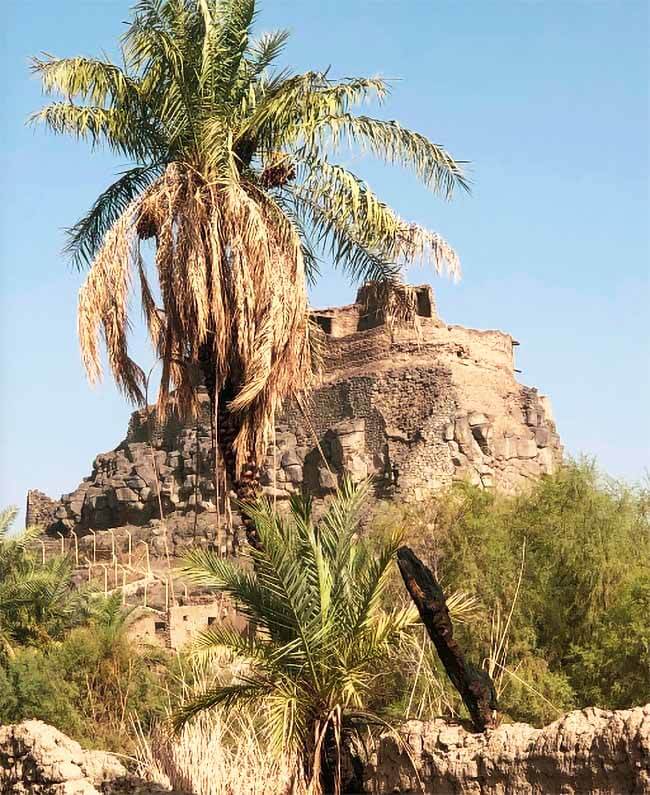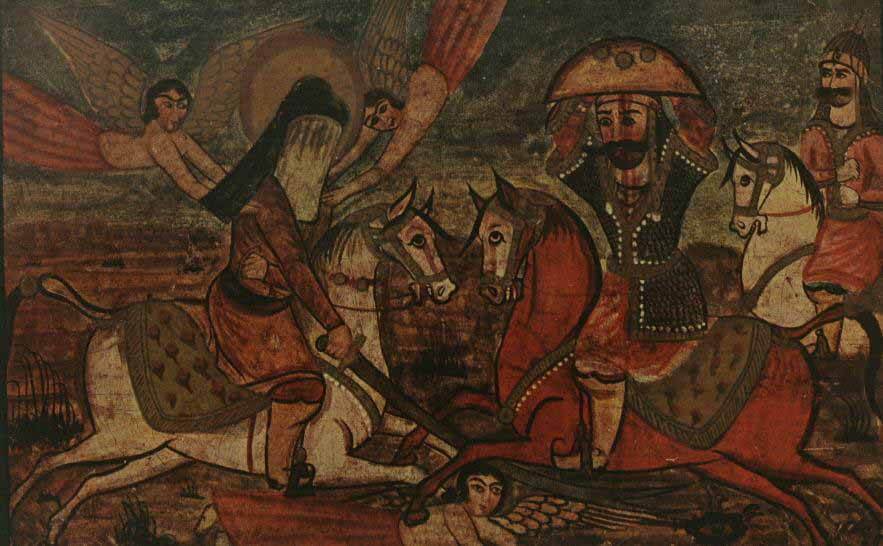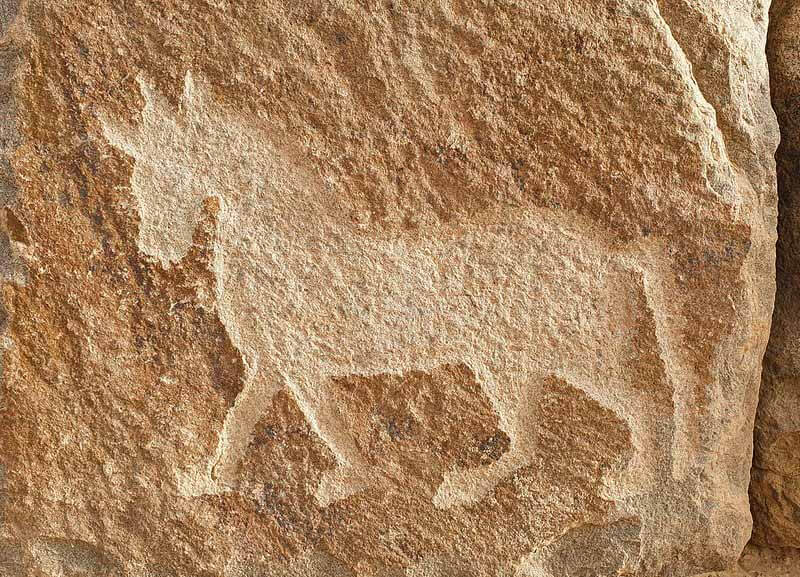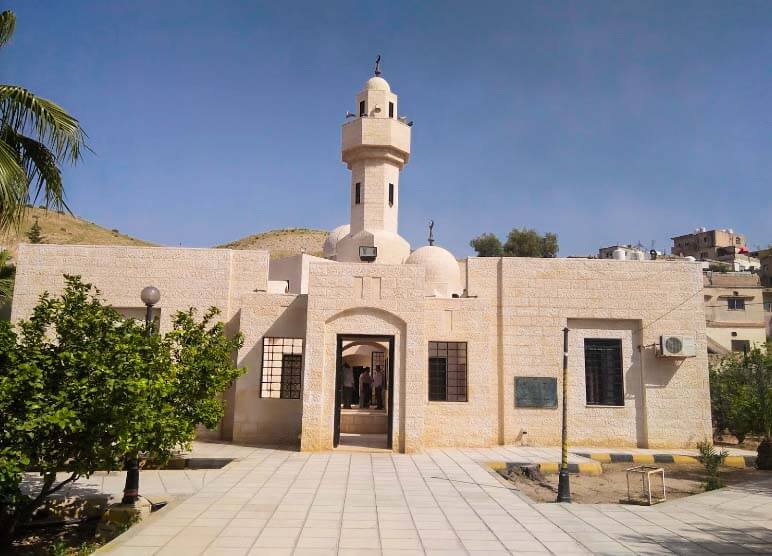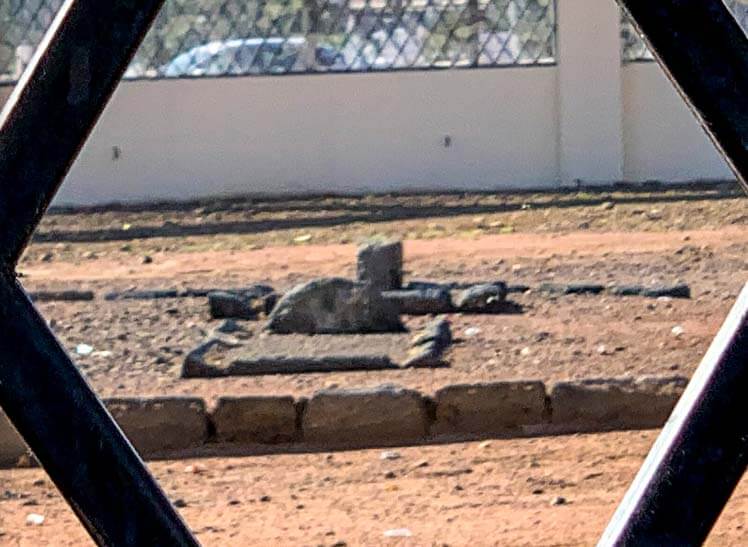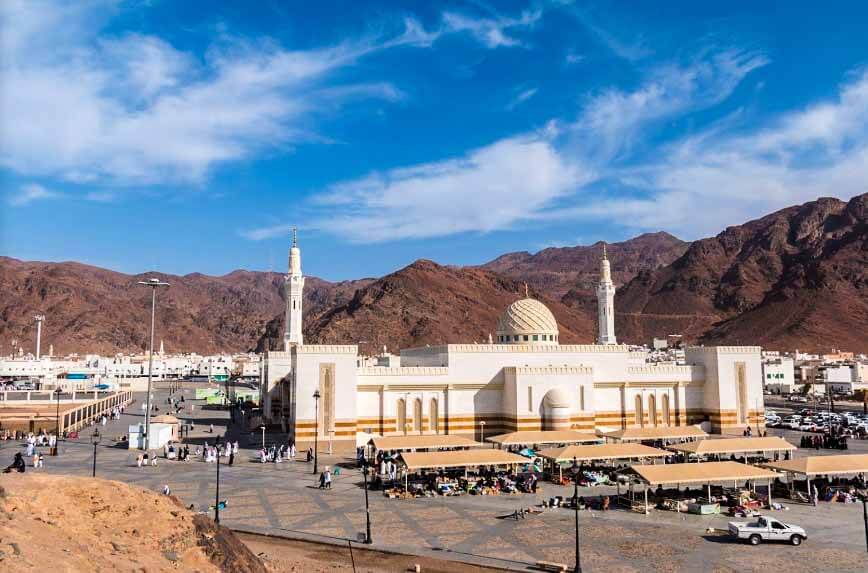Khayber, Saudi Arabia
Coordinates: 25.731295, 39.268006
The following Quranic verse refers to Khaibar:
“And He rewarded them with a speedy victory” (Surah Al-Fath 48:18)
Khaibar is an agricultural oasis situated approximately 160 KM the north of Madinah. Some scholars say that the battle of Khaibar took place in the 6th year of Hijrah (migration of Muslims from Makkah to Madinah), approx. 628 CE. However, according to the majority of scholars, it took place in the 7th year of Hijrah.
Before the conquest, Khaibar was inhabited by a mixture of Arabs and Jews. The number of Jews increased after the expulsion of the Jews from Madinah at the time of the Prophet ﷺ.
Background of Battle:
The leaders of Jews had been deeply hurt by their expulsion from their homes. These leaders, who settled in Kahibar were Salam ibn Abu al Haqiq, Kinanah ibn Abu al Haqiq, and Huyayy ibn Akhtab. The leadership of these three men was enough to drag the Jews of Khaibar into conflict aimed at retaliation against the Muslims. They were driven by an inner hatred and strong desire to return to their homes in Madinah.
Their first move against the Muslims came in the Battle of the Trench, when the Jews of Khaibar, led by the leaders of Banu Al-Nadir, played a significant role in the incitement of Quraish and the desert Arabs against the Muslims, and spent their own money for that purpose. Then they succeeded in persuading Banu Qurayzah to betray the Muslims and cooperate with their enemies.
After Allah had aided the Muslims in defending Madinah and defeating the tribes, the Messenger ﷺ felt that it was important to deal with the situation in Khaibar, which had become a source of great danger for the Muslims.
Date and Route of the Campaign:
Ibn Ishaq suggested that the battle took place in the month of Muharram, 7th A.H. Ibn Ishaq also said when the Messenger of Allah ﷺ marched from Madinah to Khaibar, he went by way of a place called ‘Isr’ and a mosque was built for him there; then by way of Al Sahbih. Then he ﷺ went forward with the army until he hatted in a valley called ‘Al-Raji, halting between the men of Khaibar and Ghatafan tribe so as to prevent the latter reinforcing Khaibar, for they were on their side against the Messenger of Allah ﷺ.
In his Sahih, Al-Bukhari narrated the following narrations that shed light on the battle of Khaibar:
Suwaid Ibn An-Numan رضي الله عنه narrated:
“In the year of the conquest of Khaibar I went with Allah’s Messenger ﷺ till we reached Sahba, a place near Khaibar, where Allah’s Messenger ﷺ offered the `Asr’ prayer and asked for food. Nothing but ‘saweeq’ (Arabic name for Barley’s roasted flour) was brought. He ordered it to be moistened with water. He and all of us ate it and the Prophet ﷺ got up for the evening prayer (Maghrib prayer), rinsed his mouth with water and we did the same, and he then prayed without repeating the ablution.” (Sahih Bukhari: 209)
Prophet ﷺ reached Khaibar:
Messenger of Allah ﷺ reached Khaibar before dawn and prayed Fajr in its vicinity. Then he attacked it before the sun rose. The Jewish peasants who came out to work with their cattle, hoes and baskets were surprised to see the Muslims there and exclaimed: “Mohammad and his army!” The Messenger answered: “Allahu Akbar! Khaibar is destroyed. When we descend into the open space of people, evil will be the morning for those who were warned (and heeded not)!
Hz. Anas رضي الله عنه narrated:
‘The Prophet ﷺ set out for Khaibar and reached it at night. He used not to attack if he reached the people at night, till the day broke. So, when the day dawned, the Jews came out with their bags and spades. When they saw the Prophet; they said, “Mohammad and his army!” The Prophet ﷺ said, Allahu-Akbar! (Allah is Greater) and Khaibar is ruined, for whenever we approach a nation (i.e. enemy to fight) then it will be a miserable morning for those who have been warned.” (Sahih Bukhari: 2945)
Hz. Anas Ibn Malik رضي الله عنه also said:
‘We reached Khaibar early in the morning and the inhabitants of Khaibar came out carrying their spades, and when they saw the Prophet ﷺ they said, “Mohammad! By Allah! Mohammad and his army!” The Prophet ﷺ said, “Allahu-Akbar! Khaibar is destroyed, for whenever we approach a (hostile) nation (to fight) then evil will be the morning for those who have been warned.” We then got the meat of donkeys (and intended to eat it), but an announcement was made by the announcer of the Prophet, “Allah and His Apostle forbid you to eat the meat of donkeys as it is an impure thing.” (Sahih Bukhari: 4198)
Narrated by Hz. Anas Ibn Malik رضي الله عنه:
‘The Prophet ﷺ offered the Fajr Prayer near Khaibar when it was still dark and then said, “Allahu-Akbar! Khaibar is destroyed, for whenever we approach a (hostile) nation (to fight), then evil will be the morning for those who have been warned.”
Then the inhabitants of Khaibar came out running on the roads. The Prophet ﷺ had their warriors killed, their offspring and woman taken as captives. Safiya was amongst the captives, she first came in the share of Dahya Alkali but later on she belonged to the Prophet ﷺ. The Prophet ﷺ made her manumission as her ‘Mahr’ (dowry).’ (Sahih Bukhari: 4200)
Failure of Banu Ghatafan:
The Jews took refuge in their strongholds and the Muslims besieged the stronghold of al Naim. Tribe of Ghatafan quickly came to the aid of the Jews of Khaibar who were their allies but they did not join in the fighting for fear that the Muslims might attack their homes. Ibn Ishaq states that they returned to their homes before reaching Khaibar.
Ibn Ishaq suggested that When Ghatafan heard about the Messenger’s ﷺ attack on Khaibar, they gathered together and marched out to help the Jews against him. But after a day’s journey, they heard rumors that their families and properties had been attacked during their absence, so they went back on their tracks and left the way to Khaibar open to the Messenger of Allah ﷺ.
Hz. Ali ibn Talib رضي الله عنه: Carrier of Flag of Muslim’s Army:
Abu Bakr Siddiq رضي الله عنه carried the flag of the Muslims for the first two days of the siege of Naim but it did not fall to him and stress and exhaustion overtook them. The following morning, the Prophet ﷺ had prayed Fajr Salah and called Ali Ibn Talib رضي الله عنه and gave him the flag. Ali carried it on the third day, and he achieved the conquest. One report indicates that the flag-bearer before Hz. Ali رضي الله عنه wasHz. Umar ibn Khattab رضي الله عنه, not Abu Bakr Siddiq رضي الله عنه, but this is a weak report.
Hz. Salamah ibn Al-Akwa رضي الله عنه narrated:
Hz. Ali رضي الله عنه remained behind the Prophet ﷺ during the Ghazwa of Khaibar as he was suffering from eye trouble. He then said, “(How can) I remain behind the Prophet ﷺ,” and followed him. So when he slept on the night of the conquest of Khaibar, the Prophet ﷺ said, “I will give the flag tomorrow, or tomorrow the flag will be taken by a man who is loved by Allah and His Apostle and (Khaibar) will be conquered through him, (with Allah’s help)”
While every one of us was hopeful to have the flag, it was said, “Here is `Ali” and the Prophet ﷺ gave him the flag and Khaibar was conquered through him (with Allah’s Help). (Sahih Bukhari: 4209)
Hz. Sahl bin Saad رضي الله عنه said:
On the day of Khaibar, Allah’s Messenger ﷺ said, “Tomorrow I will give this flag to a man through whose hands Allah will give us victory. He loves Allah and His Apostle, and he is loved by Allah and His Apostle.”
The people remained that night, wondering as to who would be given it. In the morning the people went to Allah’s Messenger ﷺ and everyone of them was hopeful to receive it (i.e. the flag). The Prophet said, “Where is Ali bin Abi Talib?" It was said, "He is suffering from eye trouble O Allah's Apostle." He said, "Send for him."Ali was brought and Allah’s Messenger ﷺ spat in his eye and invoked good upon him. So Ali was cured as if he never had any trouble. Then the Prophet ﷺ gave him the flag.Ali said “O Allah’s Messenger ﷺ! I will fight with them till they become like us.” Allah’s Messenger ﷺ said,
“Proceed and do not hurry. When you enter their territory, call them to embrace Islam and inform them of Allah’s Rights which they should observe, for by Allah, even if a single man is led on the right path (of Islam) by Allah through you, then that will be better for you than the nice red camels.” (Sahih Bukhari: 4210)
The Prophet ﷺ ordered Hz. Ali رضي الله عنه to call the Jews of Khaibar to Islam. The Prophet ﷺ said to Hz. Ali رضي الله عنه: “By Allah, if Allah guides one man (to Islam) through you, it is better for you than the most valuable camels.” [Sahih Muslim: 2406 narrated by Sahl bin Saad رضي الله عنه]
This clearly shows that the Prophet ﷺ was not eager for the booty of Khaibar rather he was concerned about spreading the message of Islam and removing obstacles from the path of its preparation.
Killing of Marhab:
Mahmud ibn Maslamah Al-Ansari رضي الله عنه was martyred in the siege of the stronghold of Naim, when Marhab (Jews leader) threw a millstone onto him from the heights of the stronghold. Ali رضي الله عنه met Marhab in combat and killed him. [Sahih Muslim: 1807 (a)]. Marhab was one of the heroes of the Jews, and his death affected their morale.
Conquering of Different Tribe’s Land:
The Messenger of Allah ﷺ, as Ibn Ishaq narrated, seized the property piece by piece and conquered the forts one by one as he came to them (Khaibar). The first to fall was of Naim; then Al-Qamus the fort of Banu Al-Huqayq. The Messenger ﷺ took captives from them among whom was Safiyah, daughter of Huyayy Ibn Aktab who had been the wife of Kinana Ibn Al-Rabi Ibn Al-Huqayq and two cousins of hers. The Messenger of Allah ﷺ chose Safiyah for himself (as mentioned above in Sahih Bukhari: 4200).
The conquest of Naim took ten days. Afterward, the Muslims conquered Al-Saab ibn Mudadh in the region of Al-Natah, which contained the richest food in Khaibar. Then came Qalaat Al-Zubayr, which was the last stronghold of Al-Natah. The fugitives from Naim, Al-Saab, and the other Jewish strongholds conquered by the Muslims had gathered in Qalaat Al-Zubayr to face Muslims. However, Muslims cut off the water supply and forced the Jews to come down and fight. They killed ten of the Jews and conquered the stronghold after a siege lasting three days. After they had dealt with the people of Al-Natah, who were strongest of the Jews, the Muslims moved from Al-Raji to Al-Manzilah.
Position of the Muslims was much stronger after they had defeated the people of Al-Natah and the rest of the Jews of Khaibar were alarmed by the fall of Al-Natah.
When the Messenger of Allah ﷺ had conquered some of their forts and got possession of some of their property, he came to their two forts Al-Watih and Al Sulaim, the last to be taken, and the Messenger of Allah ﷺ besieged them for some ten nights.
Prophet’s ﷺ marriage with Bibi Safiyah bint Huyyay رضي الله عنها:
Anas Ibn Malik رضي الله عنه said:
The Prophet ﷺ stayed with Safiya bint Huyai for three days on the way of Khaibar where he consummated his marriage with her. Bibi Safiya رضي الله عنها was amongst those who were ordered to use a veil. (Sahih Bukhari: 4212)
In another narration, Hz. Anas ibn Malik رضي الله عنه said that the Prophet ﷺ stayed for three rights between Khaibar and Madinah and was married to Bibi Safiya رضي الله عنها.
I invited the Muslim to his marriage banquet (reception) and there was neither meat nor bread in that banquet but the Prophet ﷺ ordered Bilal to spread the leather mats on which dates, dried yogurt and butter were put. The Muslims said amongst themselves, “Will she (i.e., Bibi Safiya رضي الله عنها) be one of the mothers of the believers, i.e., one of the wives of the Prophet ﷺ, or just (a lady captive) of what his right-hand possesses.” Some of them said, “If the Prophet ﷺ makes her observe the veil, then she will be one of the mothers of the believers (i.e., one of the Prophet’s ﷺ wives), and if he does not make her observe the veil, then she will be his lady slave.” So when he departed, he made a place for her behind him (on his mount) and made her observe the veil.” (Ref. An-Nasai: 3382)
The Conquest of Khaibar’s Forts:
According to Ibn Ishaq, the Messenger of Allah ﷺ besieged the people of Khaibar in their two forts Al-Watih and Al-Sulaim until they could hold out no longer they asked him to let them go, and spare their lives, and he did so. Now, the Messenger of Allah ﷺ had taken possession of all their property – Al-Shaqq, Al-Nata, and Ak Katibah and all their forts – except what appertained to these two.
When the people of Fadak (garden oasis in Khaibar,) heard of what had happened, they sent to the Messenger ﷺ asking him to let them go and spare their lives and they would leave him their property, and he did so. The one who acted as intermediary was Muhqyisa Ibn Masud, brother of Banu Harithah (one of Jews tribe). When the people of Khaibar surrounded on these conditions, they asked the Messenger of Allah ﷺ to employ them on the property with half share in the produce, saying, “We know more about it than you and we are better farmers.”
The Messenger of Allah ﷺ agreed to this arrangement on the condition that: “If we wish to expel you we will expel you.” (Ref. Sahih Bukhari: 2338)
The rest of Khaibar fell to the Muslims. The people of Fadak, to the north of Khaybar, hastened to ask for peace, and to be allowed to leave in safety, and leave their wealth in return for that. The Prophet ﷺ agreed to their request.
After conquering Khaibar, the Jews were not expelled from Khaibar at the time of the Prophet ﷺ.
There is an authentic report that the Prophet ﷺ allowed the Jews to stay in Khaibar on the condition that they work in agriculture and spend their own money on it, and that the Muslims would receive one half of their crops. This was in spite of the fact that the Muslims had the right to expel them if they wanted to.
Martyrs and Deaths during the Battle:
The number of Jewish men killed in the battle of Khaibar was 93. Twenty Muslims were martyred, according to Ibn Ishaq.
The Division of the Booty:
In his Sahih, Al-Bukhari reported the following narrations that explain how the Prophet ﷺ divided the booty in Khaibar:
Hz. Jubair bin Mutim رضي الله عنه said:
Uthman bin Affan رضي الله عنه and I went to the Prophet ﷺ and said, “You had given Banu Al-Muttalib from the Khumus of Khaibar’s booty and left us in spite of the fact that we and Banu Al-Muttalib are similarly related to you.” The Prophet ﷺ said, “Banu Hashim and Banu Al-Muttalib only are one and the same.” So the Prophet ﷺ did not give anything to Banu Abd Shams and Banu Nawfal.’ (Sahih Bukhari: 4229)
So the Prophet ﷺ did not give anything to Banu Abd Shams and Banu Nawfal.
Hz. Ibn Umar رضي الله عنه said that on the day of Khaibar, Allah’s Messenger ﷺ divided (the war booty of Khaibar) with the ratio of two shares for the horse and one-share for the foot soldier. (Sahih Bukhari: 4228)
The sub-narrator, Nafi explained this, saying, “If a man had a horse, he was given three shares and if he had no horse, then he was given one share.”
Hz. Umar Ibn Al-Khattab رضي الله عنه said,
By Him in Whose Hand my soul is, were I not afraid that the other Muslims might be left in poverty, I would divide (the land of) whatever village I may conquer (among the fighters), as the Prophet ﷺ divided the land of Khaibar. But I prefer to leave it as a (source of) a common treasury for them to distribute it revenue amongst themselves. (Sahih Bukhari: 4235)
Hz. Abu Said Al-Khudri رضي الله عنه and Hz. Abu Hurairah رضي الله عنه narrated that:
Allah’s Messenger ﷺ appointed a man as the ruler of Khaibar who later brought some Janib (i.e. dates of good quality) to the Prophet. On that, Allah’s Messenger ﷺ said (to him). “Are all the dates of Khaibar like this?” He said, “No, by Allah, O Allah’s Messenger ﷺ! But we take one Sa of these (dates of good quality) for two or three Sa’s of other dates (of inferior quality).” On that, Allah’s Messenger ﷺ said, “Do not do so, but first sell the inferior quality dates for money and then with that money, buy Janib.” (Sahih Bukhari: 4244 & 4245)
Hz. Abu Said رضي الله عنه and Abu Hurairah رضي الله عنه said:
“The Prophet ﷺ made the brother of Bani Adi (Tribe) from the Ansaar as the ruler of Khaibar.” (Sahih Bukhari: 4246 & 4247)
A Poisoned Sheep Gifted to the Messenger ﷺ:
At Khaibar, the Jews cooked a sheep containing poison and presented it to the Prophet ﷺ.
Narrated by Hz. Abu Hurairah’s رضي الله عنه saying:
“When Khaibar was conquered, a (cooked) sheep containing poison, was given as a present to Allah’s Apostle ﷺ.” (Sahih Bukhari: 4249)
Bibi Aishah رضي الله عنها said:
The Prophet ﷺ in his ailment in which he died, used to say, “O `Aisha! I still feel the pain caused by the food I ate at Khaibar, and at this time, I feel as if my aorta is being cut from that poison.” (Sahih Bukhari: 4428)
Outcome of the Battle:
The conquest of Khaibar improved economic position of the Muslims.
Bibi Aishah رضي الله عنها said:
‘When Khaibar was conquered, we said, “Now we will eat our fill of dates.’ (Sahih Bukhari: 4242)
Hz. Ibn Umar رضي الله عنه said,
“We did not eat our fill until we conquered Khaybar”. (Sahih Bukhari: 4243)
These reports give a clear picture of the benefits of the conquest of Khaibar in strengthening the economic position of the Muslims and of the economic situation before the conquest.


